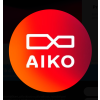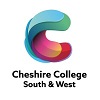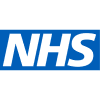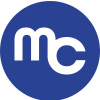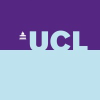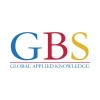Snabbfakta
-
- Toulouse
Ansök senast: 2024-06-23
PhD Position in Autonomous Satellite Deorbiting (AIKO, CNES, ISAE-SUPAERO)
Overview
Deorbiting satellites is the process of removing a satellite from orbit at the end of its mission or when it becomes non-operational to reduce the risk of space debris and collisions on populated orbits.
Satellite deorbiting is essential for space sustainability: space agencies like CNES have already established strict regulations on the topic. For example, before receiving launch clearance, the satellite assembly and operations teams must show that the satellite has enough propellant on board.
Autonomy plays a crucial role in improving the deorbiting process's efficiency, safety, and scalability. For example, the deorbiting processes are evolving to cover new use cases like large constellations.
As the number of satellites and constellations in space increases, relying solely on human operators for deorbiting decisions becomes increasingly impractical. Autonomous systems can scale up to manage multiple satellites simultaneously.
More generally, autonomous systems can adapt to changing conditions by detecting potential collision risks or responding to unexpected events by making real-time decisions based on available data.
This PhD thesis aims to investigate an autonomous framework for satellites deorbiting in low Earth orbit (LEO) and very low Earth orbit (VLEO) with a strong focus on collision avoidance during manoeuvring and deorbiting pace assets in degraded conditions.
The PhD aims to provide tools and guidelines to set up autonomy pipelines for increasing space safety and sustainability by reducing the risk of space debris and collisions during deorbiting manoeuvres in nominal and off-nominal conditions.
The PhD will rely on the SacLab as the hosting laboratory and AIKO as the partnered company. SacLab (ISAE-SUPAERO) is a leading laboratory specialised in the research on future space systems (system architecture and engineering, mission analysis and optimisation, human factors or robotic). It already has a strong record of interesting studies on the topics of in-orbit servicing and space traffic management. AIKO is a recognised leader in AI-based software products whose primary objective is enhancing satellite autonomy and minimising the need for frequent human intervention in the definition and execution of satellite activities. AIKO France is one of the first players on the market seeking to provide a solution for autonomous manoeuvring.
This PhD will be conducted in strong interaction with CNES which is co-funding this thesis.
To candidate for this position, please submit your application at Emploi CNES - 24-109 Autonomous Satellite Deorbiting with Collision Avoidance Capabilities Doctorat, 36 mois
Tasks
- Define typical objectives and constraints of the deorbiting process:
- Define the autonomy framework to be set in place for deorbiting
- Implement and test the developed framework:
- Utilize a high-fidelity simulation environment
- Possibly incorporate hardware-in-the-loop solutions
Requirements
- Strong Background in Orbital Mechanics and Spacecraft Operations:
- Demonstrated expertise in orbital mechanics principles and spacecraft operations through academic background or professional experience.
- Proficiency in analyzing and predicting spacecraft trajectories, orbital maneuvers, and related dynamics.
- Interest in Space Safety and Sustainability:
- Passion for promoting space safety and sustainability in space missions.
- Understanding of the challenges posed by space debris and collisions, and a commitment to addressing them.
- Interest in AI and Autonomous Systems:
- Enthusiasm for exploring the application of artificial intelligence (AI) to enhance spacecraft autonomy.
- Familiarity with AI concepts and their potential integration into spacecraft operations.
- Strong Mathematical Background and Modeling Skills:
- Experience with mathematical modelling techniques relevant to spacecraft dynamics and control systems.
- Innovation-Driven Mindset:
- Proven track record of innovation and creative problem-solving.
- Demonstrated ability to push the boundaries of conventional thinking and drive successful outcomes.
Preferred Experience
- Experience with simulation software such as Orekit.
- Familiarity with industry standards and best practices in spacecraft design, operations, and safety.
- Strong communication and collaboration skills, with the ability to work effectively in interdisciplinary teams.
- Knowledge of Python, C++, and/or C# programming
DEI in AIKO
AIKO is an equal-opportunity employer. We encourage candidates from all backgrounds and experiences to apply.
Research shows that women or people belonging to minorities often don't apply to roles they don't feel they match 100% of the requirements. If this posting is interesting to you, we encourage you to apply even if not a perfect match! We are looking for real people, not robots!
About us
AIKO is a deep-tech company founded in 2017, with offices in Torino, Italy, and Toulouse, France. We specialize in Artificial Intelligence and Automation technologies for space applications, delivering state-of-the-art solutions for flight and ground software with the goal of enabling autonomous space missions. Our mission is to provide cutting-edge solutions to help advance the exploration and understanding of our universe.
